

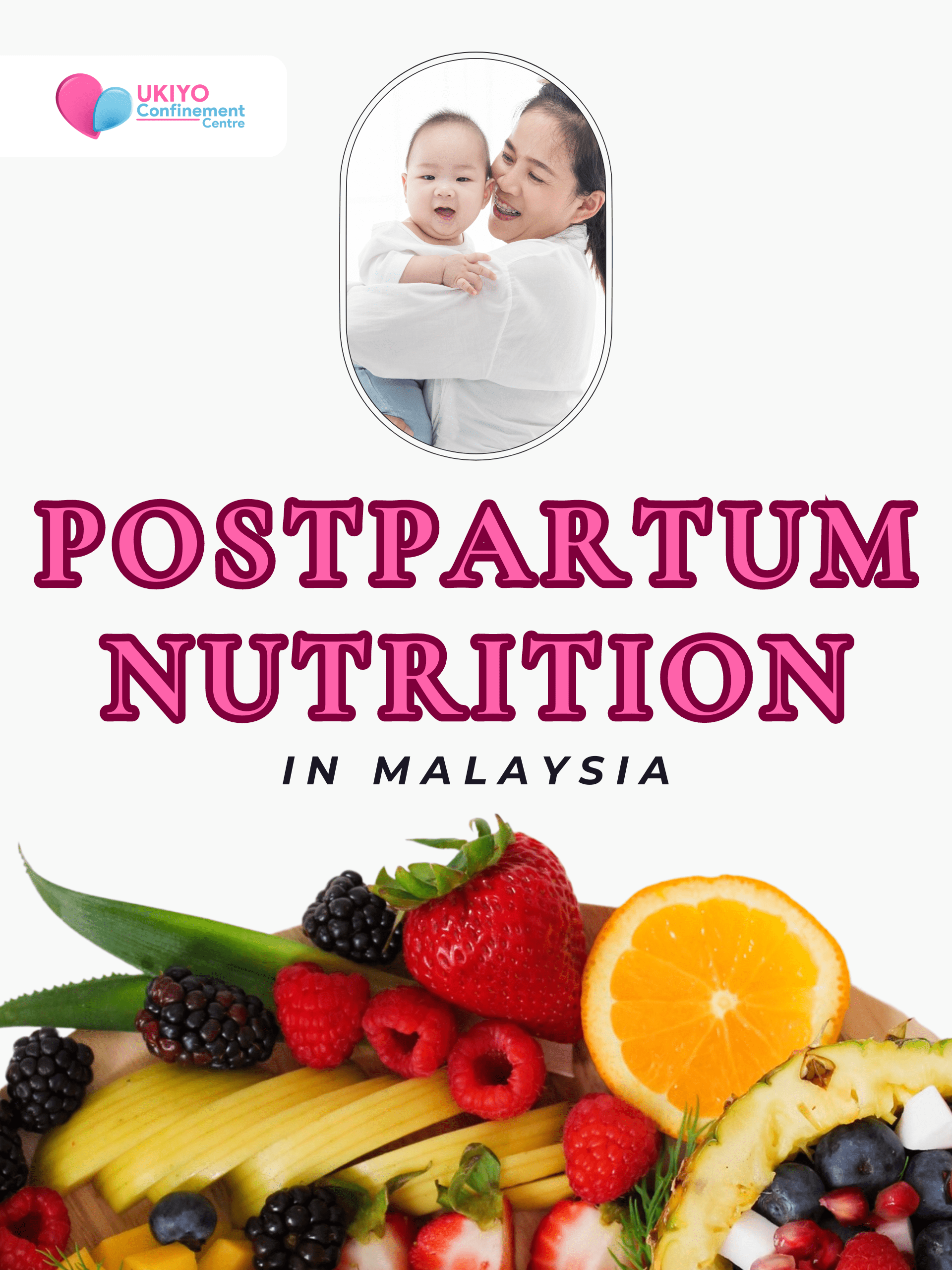

Ukiyo Confinement Centre
19/03/2024
Postpartum Nutrition in Malaysia
Welcoming a new life into the world is a profound experience, marking the beginning of a transformative journey for both mother and child. However, the postpartum period is also a time of significant physical and emotional adjustment, as mothers navigate the complexities of recovery, breastfeeding, and caring for their newborns. At Ukiyo Confinement Centre, we understand the importance of supporting mothers during this critical phase by providing tailored care and guidance to promote optimal health and well-being.
Cultural Significance of Postpartum Nutrition in Malaysia


Malay Confinement Practices:
- Emphasis on Warming Foods: Traditional Malay confinement practices often revolve around the consumption of warming foods rich in herbs and spices such as turmeric, ginger, and galangal.
- Incorporation of Local Ingredients: Malay confinement meals frequently feature locally sourced ingredients like lemongrass, pandan leaves, and white radish, known for their nourishing properties and culinary versatility.
- Promotion of Healing Herbs: Herbs such as kacip fatimah and pegaga are commonly used in Malay postpartum cuisine for their purported healing and rejuvenating effects on the body.


Chinese Confinement Traditions:
- Focus on Qi Restoration: Chinese confinement diets prioritize the restoration of qi (vital energy) through the consumption of foods like ginger, sesame oil, and black vinegar, believed to promote circulation and vitality.
- Symbolism in Food Choices: Certain foods, such as fish and chicken, hold symbolic significance in Chinese culture, representing prosperity, fertility, and abundance, and are often included in confinement meals.
- Herbal Tonics and Soups: Chinese postpartum cuisine includes a variety of herbal tonics and soups, such as dong quai soup and red date tea, renowned for their nourishing and revitalizing properties.


Indian Postpartum Practices:
- Spices and Aromatics: Indian confinement diets are characterized by the use of aromatic spices like cumin, fenugreek, and cardamom, believed to aid digestion, stimulate milk production, and promote postpartum healing.
- Vegetarian Emphasis: Indian cuisine offers a rich array of vegetarian options, including lentils, beans, and dairy products, which are commonly incorporated into postpartum meals for their protein, calcium, and iron content.
- Ayurvedic Influences: Ayurvedic principles often inform Indian postpartum practices, with an emphasis on balancing the body’s doshas (energies) through dietary choices and herbal remedies.
Nutritional Needs and Dietary Considerations During Postpartum
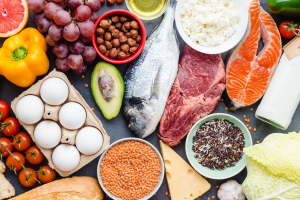

Essential Nutrients for Recovery:
- Iron-Rich Foods: Iron is essential for replenishing maternal stores depleted during childbirth and supporting hemoglobin production. Incorporating iron-rich foods such as lean meats, beans, leafy greens, and fortified cereals can help prevent postpartum anemia.
- Calcium Sources: Calcium is crucial for bone health and milk production during lactation. Dairy products like milk, yogurt, and cheese, as well as fortified plant-based alternatives like tofu and almond milk, are excellent sources of calcium for postpartum mothers.
- Protein Requirements: Protein is necessary for tissue repair and muscle recovery postpartum. Including protein-rich foods such as poultry, fish, eggs, legumes, and nuts in the diet can support postpartum healing and promote satiety.


Hydration and Fluid Intake:
- Importance of Hydration: Adequate hydration is essential for maintaining milk supply, supporting digestion, and promoting overall well-being during the postpartum period. Postpartum mothers should aim to drink at least 6-8 cups of fluids per day, including water, herbal teas, and nourishing broths.
- Monitoring Urine Color: Monitoring urine color can serve as a simple indicator of hydration status, with lighter-colored urine indicating adequate fluid intake. Encouraging mothers to drink to thirst and prioritize hydration can help prevent dehydration and support optimal lactation.
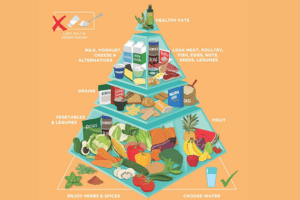

Balanced Meal Planning:
- Malaysian Food Pyramid: Following the Malaysian Food Pyramid can help postpartum mothers plan balanced meals that meet their nutritional needs. Emphasizing whole grains, fruits, vegetables, lean proteins, and healthy fats can provide essential vitamins, minerals, and antioxidants necessary for postpartum recovery and lactation.
- Portion Control and Variety: Encouraging portion control and variety in meal planning can ensure that postpartum mothers receive a diverse array of nutrients while preventing excessive calorie intake. Including a mix of colorful fruits and vegetables, lean proteins, whole grains, and plant-based fats can promote satiety and satisfaction.
Ukiyo Confinement Centre's Approach to Postpartum Nutrition Support
Ukiyo Confinement Centre is dedicated to providing postpartum mothers with strict confinement healthy and balanced diet meals, complemented by Traditional Chinese Medicine (TCM) herbal soups.
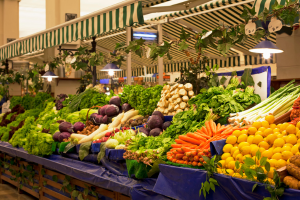

Emphasis on Nutrient-Rich Ingredients:
- Quality and Freshness: We prioritize the use of high-quality, locally sourced ingredients in our confinement meals, ensuring freshness, flavor, and nutritional integrity in every dish.
- Seasonal Specialties: Our menus feature seasonal specialties and regional delicacies, allowing mothers to enjoy the diverse flavors and nutritional benefits of Malaysian cuisine while supporting local farmers and producers.
- Balanced Nutritional Profile: Each meal is carefully balanced to provide essential nutrients such as protein, carbohydrates, vitamins, and minerals necessary for postpartum recovery, lactation support, and overall health and wellness.
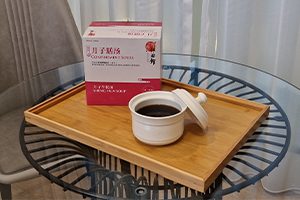

Integration of TCM Herbal Soups:
- Traditional Healing Practices: Ukiyo Confinement Centre incorporates TCM herbal soups into our confinement meals, drawing upon centuries-old healing practices to promote overall well-being and vitality during the postpartum period.
- Herbal Formulations: Our herbal soups are meticulously crafted using a blend of premium Chinese herbs selected for their therapeutic properties, including ingredients known to replenish vital energy, promote blood circulation, and support lactation.
- Holistic Wellness Benefits: By integrating TCM herbal soups into our meal plans, we offer mothers a holistic approach to wellness that addresses both physical and emotional needs, fostering a sense of balance, harmony, and rejuvenation.


Example of Healthy Meals:
- Breakfast: Steamed herbal chicken congee infused with nourishing Chinese herbs such as dang gui (angelica root) and huai shan (Chinese yam); served with a side of stir-fried baby bok choy and a warm cup of red date tea.
- Lunch: Braised fish fillet with ginger and scallions, accompanied by a generous serving of mixed vegetables stir-fried with garlic and sesame oil; served with a bowl of nourishing herbal soup featuring ingredients like goji berries and red dates.
- Dinner: Stir-fried tofu and broccoli in oyster sauce, served alongside a portion of steamed brown rice and a bowl of comforting herbal soup infused with ingredients such as ginseng and wolfberries.
The postpartum period is a time of profound physical and emotional changes, requiring tailored care and support to promote optimal health and well-being for both mother and child. At Ukiyo Confinement Centre, we are committed to providing comprehensive nutrition support, personalized meal planning, and holistic wellness services to empower postpartum mothers on their journey to recovery and self-care. By embracing cultural traditions, integrating local ingredients, and offering evidence-based nutritional guidance, we strive to ensure that every mother receives the nourishment, support, and encouragement she needs to thrive during the postpartum period and beyond.


